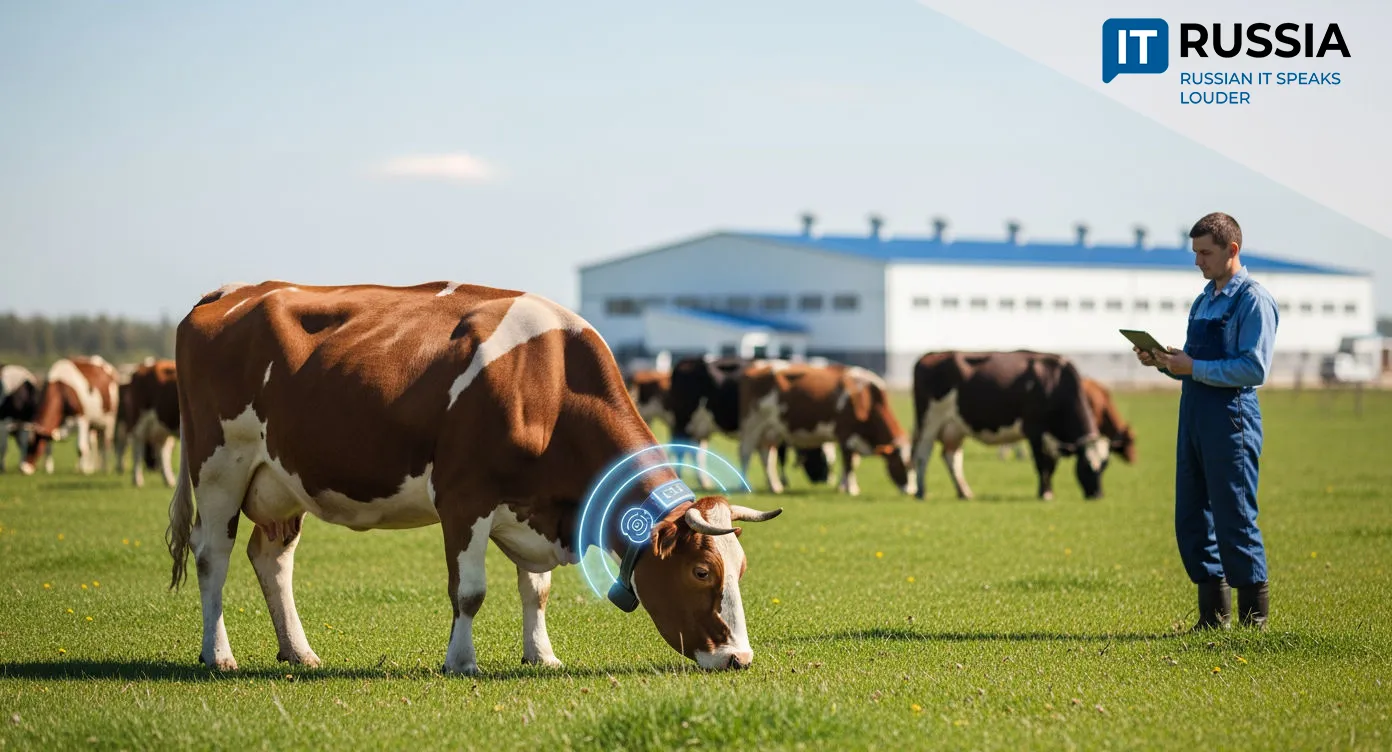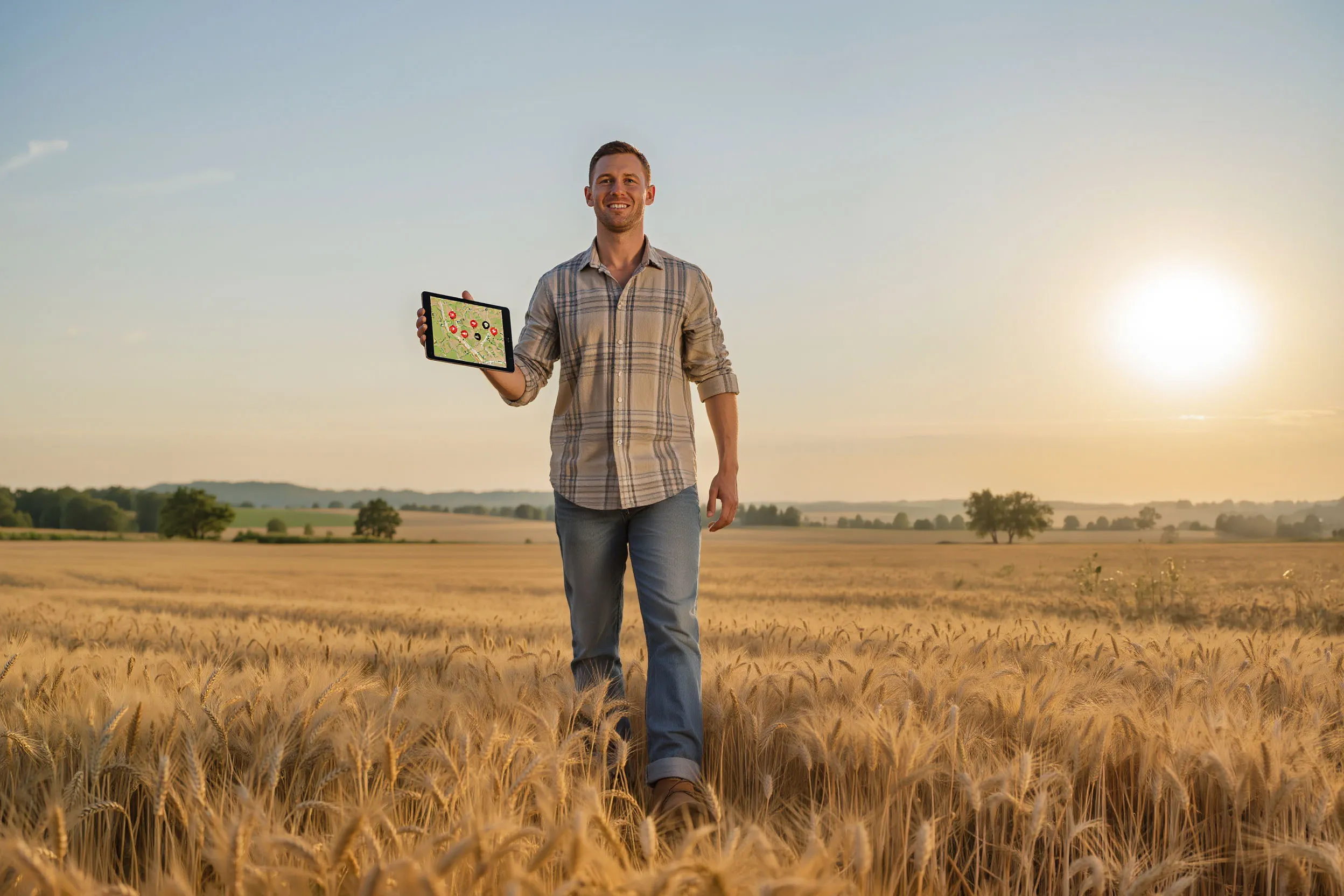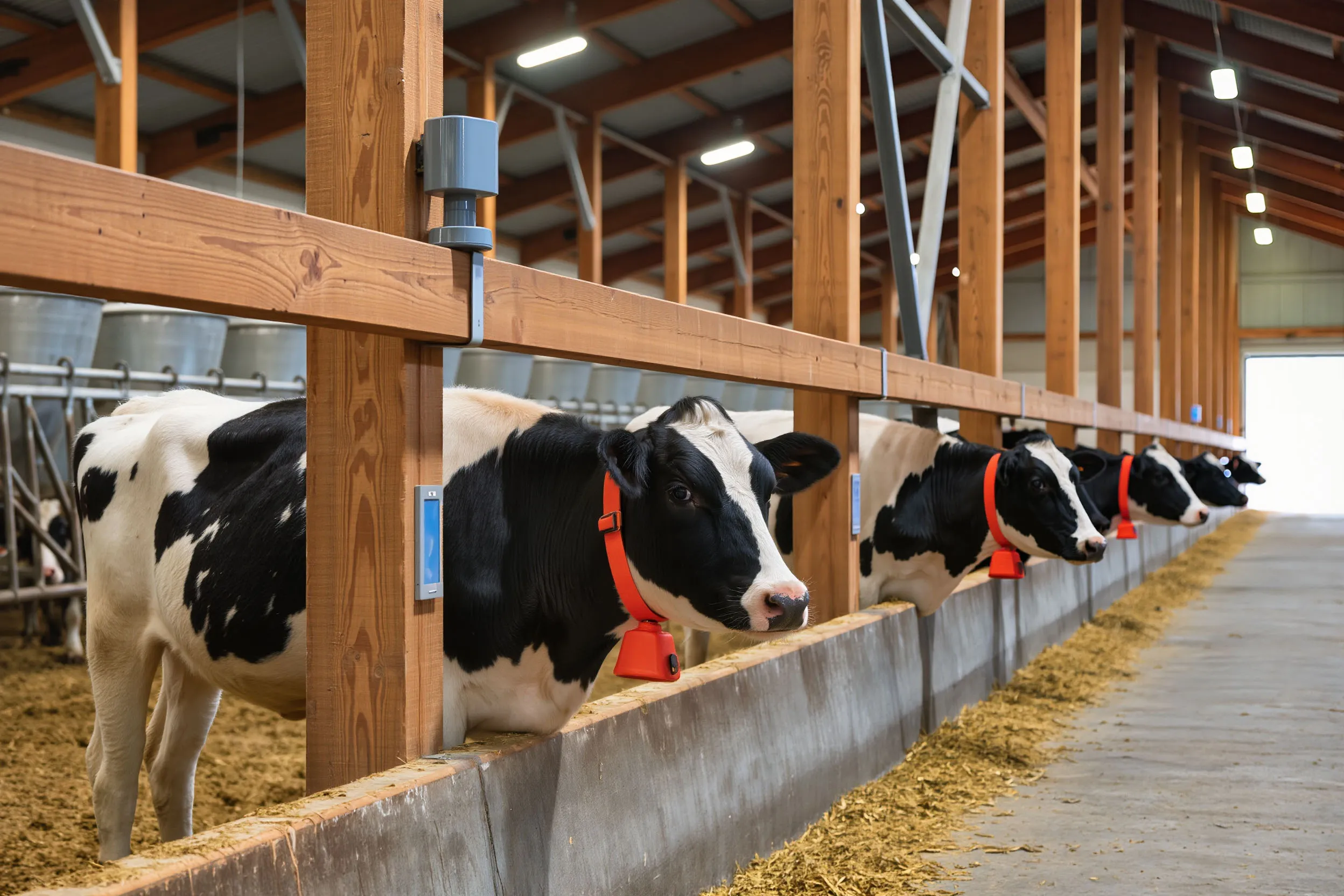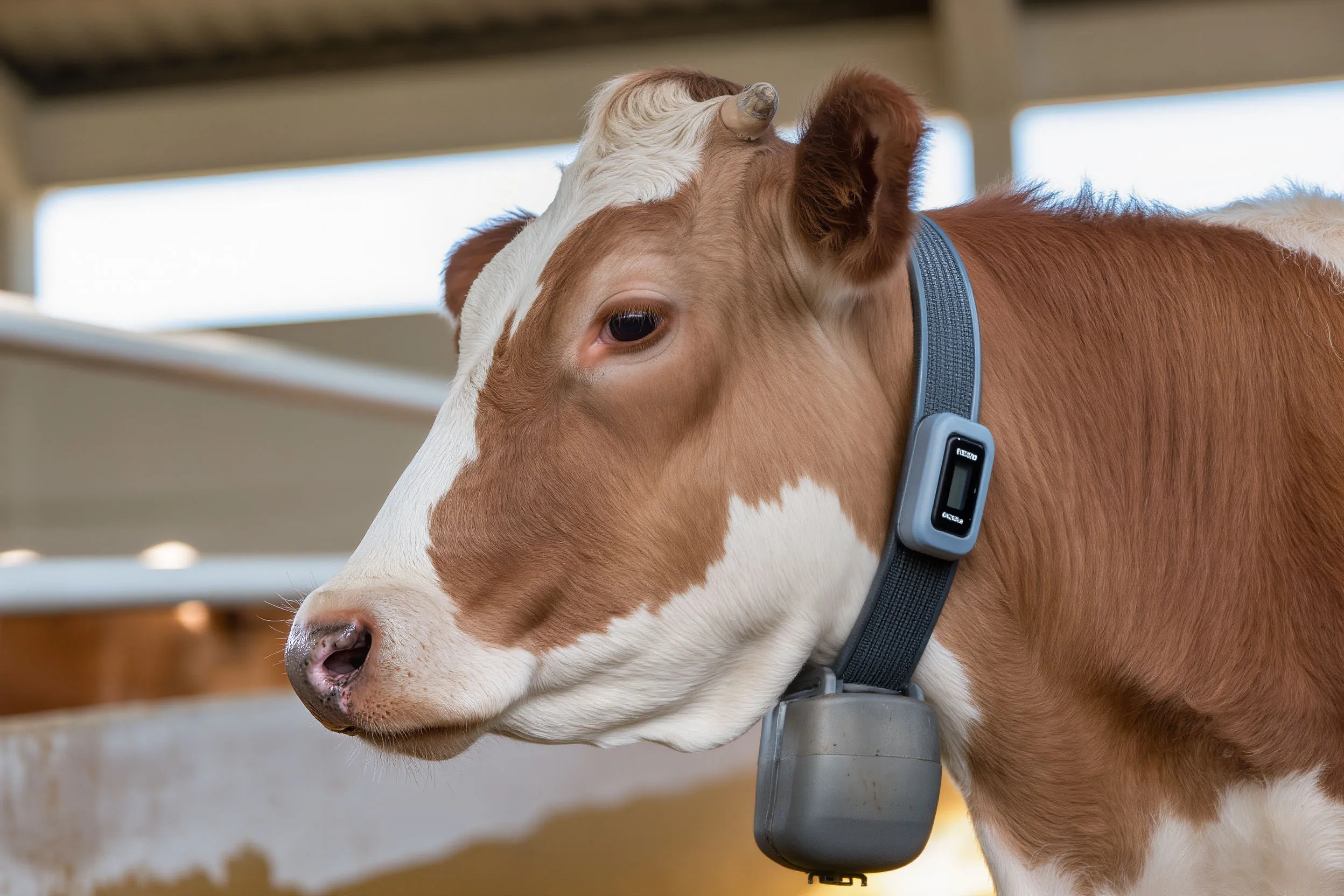Russia Turns to Digital Collars to Identify and Monitor Cattle
A tech startup from Zelenograd has introduced a new RFID‑based livestock identification system, aiming to raise the accuracy of herd management and strengthen Russia’s growing digital agriculture sector.

A New Foundation for Breeding and Herd Management
Marking livestock with unique identification numbers is a critical challenge in modern animal husbandry. Digital identification not only streamlines herd management but also strengthens the accuracy of breeding records, helping farmers build data‑driven strategies for herd improvement.
Since March 1, 2024, Russia has required mandatory identification and tracking of agricultural animals—including cattle—in the state system VetIS (the Horriot platform). For farmers, digital identification now serves as both a regulatory requirement and a tool for higher operational efficiency.

ZELMET, a Zelenograd‑based engineering startup, has developed a removable RFID collar system designed to provide precise, real‑time identification of livestock. The solution eliminates the need for ear tags, which are often lost, and avoids the stress and veterinary involvement associated with subcutaneous microchips.
RFID Collars: Always Connected, Always Trackable
The ZELMET system was created in partnership with the Moscow Institute of Electronic Technology’s startup studio. Each collar contains an RFID tag that allows farmers to instantly identify an animal, track its movements, and monitor behavior and health indicators.
Ilya Epov, founder and CEO of ZELMET, explains that the idea emerged from a real industry challenge: “A customer producing intragastric bolus chips for cattle noticed that the devices could not be read from more than 50 centimeters. They asked us to develop a more reliable modern solution for livestock identification.”
RFID collars allow farmers to detect unauthorized movement, helping prevent theft—a persistent issue for rural households. The project has already gained national recognition, entering Russia’s TOP‑1000 university‑affiliated startups in 2024. The team is now testing devices and building proprietary software for data processing.

Transforming Livestock Farming Through Digital Monitoring
Digital tracking technologies in agriculture open entirely new opportunities for livestock development. When RFID systems are integrated with digital databases and AI tools, farmers can analyze lineage, productivity, breed data, appearance, and birth or import dates.
Real‑time physiological monitoring helps reduce seasonal drops in milk production and improves animal health management. Digital logs also enable timely verification of vaccinations and regulatory responses to disease outbreaks, reducing industry losses. Importantly, a device that provides continuous health data can become the basis for livestock insurance.
A Path Toward ‘Digital Farms’ and Export Potential
The ZELMET solution is fully compatible with existing bolus‑based systems, allowing farms to combine multiple monitoring tools into integrated livestock‑management platforms—sometimes referred to as digital farms.

Such systems reduce manual labor, increase the accuracy of production data, and pave the way for full ERP‑level automation in livestock management. Mass digital identification reduces the number of unregistered animals, improving animal welfare and product quality.
Russia’s growing ecosystem of agricultural monitoring technologies is accelerating the emergence of new IT startups and engineering solutions. Once adapted for broader use, these systems could become attractive, financially accessible export products for countries with developing livestock sectors.










































